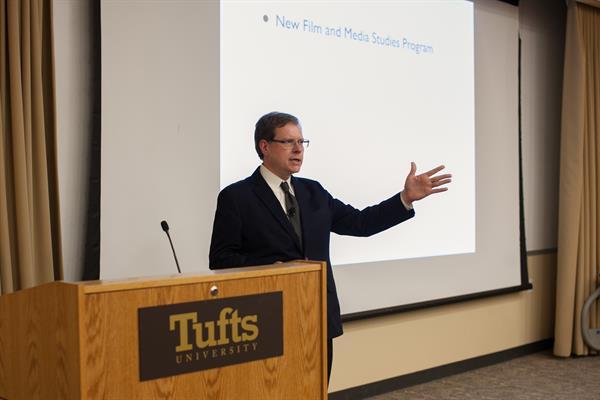Film, Art and the Limits of Science: In Defense of Humanistic Explanation

There is currently a vigorous debate in film studies and related disciplines about the extent to which scientific paradigms like evolutionary psychology and neuroscience can explain the cinema and other art forms. This debate tends to devolve into extreme positions, with many film scholars and other humanists insisting that science has little or no role to play in the study of the arts, while a minority contends that it is always needed to fully account for cultural phenomena like film.
Malcolm Turvey advocates for a more moderate position. In this new book, Film, Art and the Limits of Science: In Defense of Humanistic Explanation, he argues that, while the sciences can explain much about film and the other arts, there is much about these phenomena that only humanistic methods can account for. He thereby mounts a trenchant defense of the purpose and value of humanistic explanation, one that nevertheless acknowledges and welcomes the legitimate contribution of the sciences to the study of the arts.
Malcolm Turvey is Sol Gittleman Professor in the Department of the History of Art and Architecture at Tufts University and was the founding Director (2015-2021) of Tufts' Film & Media Studies Program. He is also an editor of the journal October. He is the author of Doubting Vision: Film and the Revelationist Tradition (Oxford University Press, 2008), The Filming of Modern Life: European Avant-Garde Film of the 1920s (MIT Press, 2011), and Play Time: Jacques Tati and Comedic Modernism (Columbia University Press, 2019); and co-editor of Wittgenstein, Theory, and the Arts (Routledge, 2001). He is currently working on a book provisionally titled Philosophies of Horror.